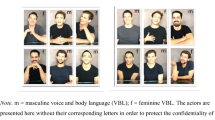Conclusion
The information that has been presented in this paper seems to have two major implications for the understanding of female achievement.
First, the findings of the Terman study clearly strengthen the position that the underrepresentation of women among the great artists and scientists is due to social rather than biological factors. As the study indicates, the number of gifted girls was, at age 10, almost as high as the number of gifted boys (about 45% of the gifted population). From the first grade through college, these girls equalled or excelled the boys in school achievements. However, in contrast to the boys, they did not become leaders of society, brilliant scientists, or artists. In fact, in terms of occupational status, income, and intellectual contribution to society, they proved to be less successful than average (nongifted) males.
Second, the findings of the Terman study clearly strengthen the position that superior intellect and even superior qualifications cannot overcome structural discrimination. In a society in which sexual stereotypes determine the allocation of power and economic rewards even the best qualified, highly intelligent women are likely to end up in low-paying, low-prestige, and dead-end occupations. It only remains to see whether the recent changes in social attitudes towards women will result in significant structural changes and consequently in a better chance for gifted women to make full use of their potential.
Similar content being viewed by others
References
Terman, L. M.Genetic studies of genius —Mental and physical traits of a thousand gifted children (Vol. 1). Stanford, Cal.: Stanford University Press, 1925.
Terman, L. M.Genetic studies of genius — The gifted child grows up (Vol. 4). Stanford, Cal.: Stanford University Press, 1947.
Terman, L. M.Genetic studies of genius — The gifted group at mid-life (Vol. 5). Stanford, Cal.: Stanford University Press, 1959.
Author information
Authors and Affiliations
Rights and permissions
About this article
Cite this article
Ben-Dor, T.R. Interaction between sexual stereotypes and high IQ: The case of the gifted woman as reflected in the Terman study. Interchange 10, 67–77 (1979). https://doi.org/10.1007/BF01191441
Issue Date:
DOI: https://doi.org/10.1007/BF01191441




